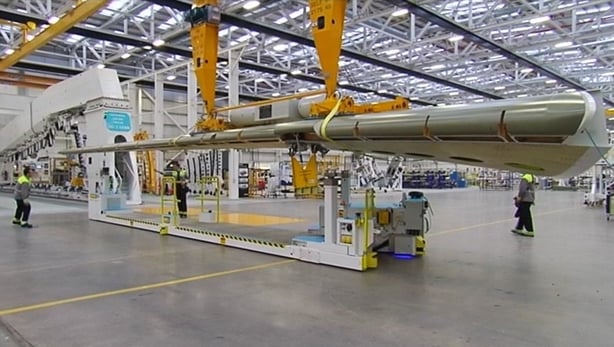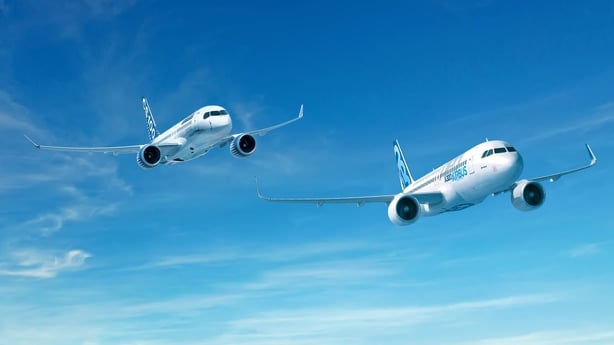Boeing has said that Bombardier's CSeries jets could still be hit with high US import duties, even if they are assembled in Alabama through an industry-changing deal with Airbus.
The deal announced earlier this week gives Airbus a majority stake in Bombardier's troubled CSeries jetliner programme.
This will secure the plane's future and give the Canadian firm a possible way out of a damaging trade dispute with Boeing, in which the US Commerce Department has threatened to impose a 300% import duties.
Boeing said that the announced deal has no effect on the pending US Department of Commerce proceedings.
"Any duties finally levied against the C-Series will have to be paid on any imported C-Series airplane or part, or it will not be permitted into the country," Michael Luttig, Boeing's general counsel, said in a statement.
Investors cheered the winners of the deal that is set to shake up the $125 billion a year market for large jets.
Bombardier shares jumped 15.7% yesterday, while shares in France-based Airbus rose 4.8%.
The transaction would give Airbus a 50.01% stake in an entity recently carved out of Bombardier to produce and market the CSeries, four years after it first flew with a goal to enter the large jets market.
But in a move emblematic of the huge risks of aerospace competition, Bombardier will get just $1 for the majority stake in exchange for Airbus's purchasing and marketing power to support an aircraft that has won fans for its fuel efficiency.
The aircraft has not secured a new order in 18 months for the 110-130 seat plane due to doubts over its future.
Bombardier's strategy of performing final assembly in Alabama might allow the CSeries to avoid duties because the trade case targets partially and fully-assembled aircraft, US international trade lawyer William Perry said.
Bombardier and Airbus could argue they are importing parts, like the wing from Northern Ireland, to be assembled in the US.

In reality, the terms of the deal mean Bombardier could pay Airbus to take over by agreeing to underwrite $700m of risks related to cost overruns in coming years.
The deal is similar to one that Airbus walked away from in 2015 when it decided the investment in a plane that had not yet entered service was too risky - with one major difference: that some of the jets will be produced in the US.
That could change the power balance in Bombardier's costly trade dispute with Boeing, though it is not the main reason why the two former rivals have come together, executives said.
"Assembly in the US can resolve the (tariff) issue because it then becomes a domestic product," Bombardier's chief executive, Alain Bellemare, told reporters at Airbus's headquarters in Toulouse.
Airbus CEO Tom Enders hailed the tie-up as "a win for Canada ... a win for the UK," referring to Bombardier's wing-making factory in Northern Ireland whose future had been threatened by the distant trade war.
He said it would also create new US jobs.
The deal appeared to catch Boeing off guard. Locked in a separate 13-year trade dispute with Airbus, Boeing on Monday called it a "questionable deal" between two of its subsidized competitors.
Bellemare said he hoped the deal would be approved within six to 12 months.
Canadian Innovation Minister Navdeep Bains, who must officially decide whether to green-light the deal, said it looked like "Bombardier's new proposed partnership ... would help position the CSeries for success".
Bombardier said the partnership should more than double the value of the CSeries program.
While it will lose control of a project developed at a cost of $6 billion, the deal gives the CSeries improved economies of scale and a better sales network.

For Airbus, the deal strengthens the bottom end of its narrowbody portfolio after poor sales of its own A319 model and expands its global footprint, potentially opening up further deals in other sectors in Canada.
Bombardier said the deal would not result in job losses and would keep the head office in Montreal. Unions said the deal could benefit workers.
The Boeing-Bombardier dispute has snowballed into a bigger multilateral trade dispute, with British Prime Minister Theresa May asking US President Donald Trump to intervene to save jobs.
Enders said the deal was different from an earlier round of talks in 2015, when he abruptly ordered an end to negotiations. He said the CSeries' had since been certified, entered service and was performing well.

